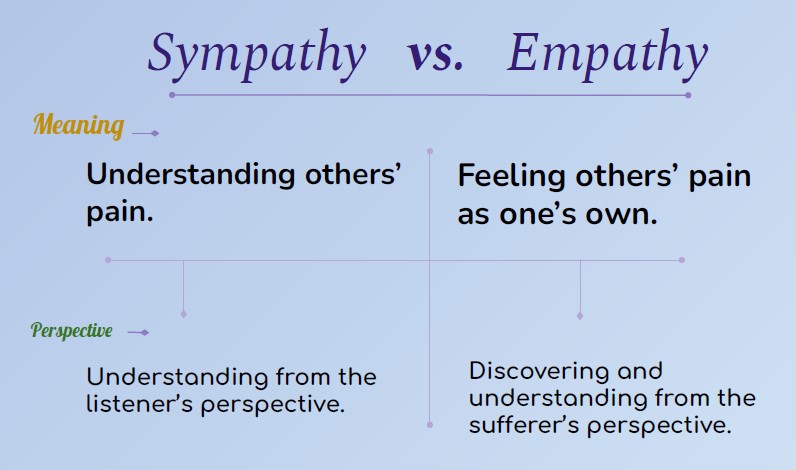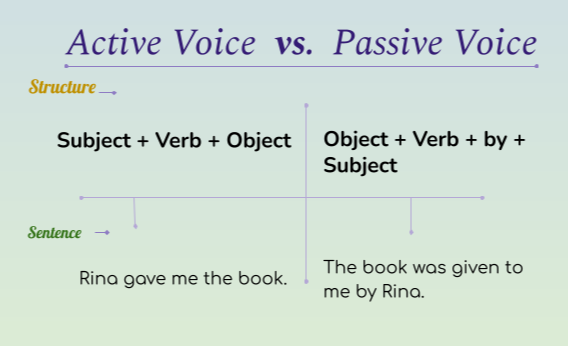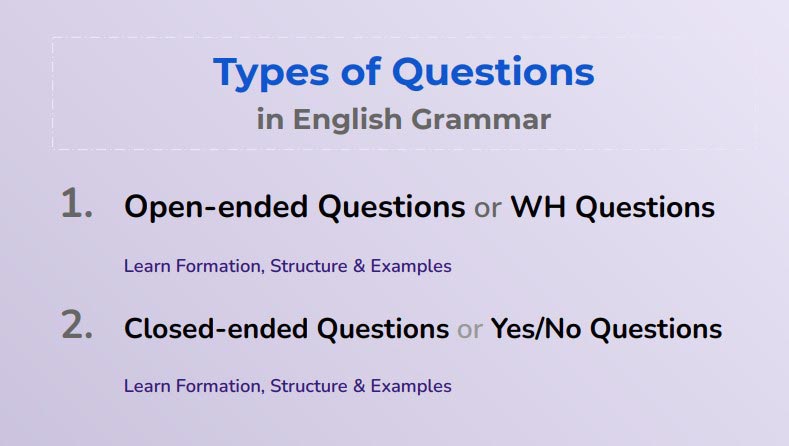Sympathy vs. Empathy - Remove the Confusion

“Sympathy” and “Empathy” are often used interchangeably in speech and write-ups. Unfortunately, most people get away with using them without much thought in the same kind of situations so often that it creates paramount confusion among the users and learners of the English language.
Sympathy
Prefix “sym-” meaning - “together” and Greek word páthos meaning - “suffering or feeling” makes the English word Sympathy. The Cambridge Dictionary definition of the word Sympathy is “an expression of understanding and care for someone else's suffering.”
To sympathize, people often say - “I can imagine how you must feel” upon sharing the pain. Sympathizers usually manage to keep a certain distance from the person in pain compared to the empathizer. That is only natural since an outsider can hardly ever feel the true feelings of the person suffering.
Empathy
The prefix “em-” meaning - “in or within” gets attached to the Greek word páthos to make the English word - “Empathy.” When someone empathizes, it means s/he can feel someone else’s pain as their own.
The Cambridge Dictionary definition of the word “Empathy” is - “the ability to share someone else's feelings or experiences by imagining what it would be like to be in that person's situation.” It is often hard to tell empathy apart from sympathy no matter how many dictionaries you consult.
People often state - “I know how you feel,” even without the sufferer’s sharing when someone empathizes with another person. It is often possible only because the empathizer had gone through a similar experience at some point in their life.
Situational Example of Sympathy and Empathy
It would be good to talk about how sympathy and empathy are at work in similar situations to clarify the distinction between the two terms. Understanding or acknowledging someone’s feelings or emotions and feeling them as one’s own is not the same thing.
For instance, when a close friend encounters a massive loss in his new start-up, only another friend owning a start-up is possibly able to truly empathize since all start-ups go through tough times in the beginning or at some point. On the other hand, people working for a big successful company who had never owned a business may understand the pain and sympathize but never without passing judgments. They can never relate to the struggles and may feel the need to give out uncalled-for advice while thinking, “he should have worked harder” or “why to start a business without tons of money in the bank?”
Sympathy vs. Empathy - The Main Differences
Even the dictionary definitions can seem confusing that’s how close these two terms are to their meaning. Looking at a table of differences listed can help -
| Keyword | Sympathy | Empathy |
| Definition | Understanding others’ pain. | Feeling others’ pain as one’s own. |
| Verbal and Non-verbal cues | Merely recognizing what’s said. | Picking up the non-verbal cues as well. |
| Perspective | Understanding from the listener’s perspective. | Discovering and understanding from the sufferer’s perspective. |
| True emotions | Ignoring the genuine emotions of the person in distress. | Registering and acknowledging the emotions of the hurt. |
| Judgments | Some sort of judgment is passed. | No judgments passed. |
| Quality of listening | Giving advice without being asked. | Concentrating solely on the unfiltered listening. |
| Example | Admitting that the set minimum wage is not sufficient but believing that not having institutional education should dictate wage and social status. | The feeling that minimum wage jobs are inhuman and every laborer deserves better treatment and an upgrade of lifestyle as their fundamental human right (because the father used to tend bars for an hourly wage). |
FAQs to Remove Confusions
1. Is it better to empathize or sympathize?
Empathizing has proven always to be more effective than sympathizing with someone. However, since empathizing shows compassion towards others minus the negative points existent in sympathizing, it is always better to empathize no matter the situation.
2. Isn’t empathy one kind of sympathy?
One may think empathy is a different kind of sympathy since they know the latter term better and use it more often. However, the crucial differences between the two terms are undeniable, and trying to explain one of these terms through another would only build on the already existing confusion.
Grammar
Read More
- How to Use "Therefore" in Sentences Avoiding Common Mistakes
- How to Use "Whereas" with Examples and Avoid Common Mistakes
- When and How to Use "Thus" Correctly Without Common Mistakes
- How to Use "On the Contrary" Properly with Meaning and Examples
- When and How to Use "Either/Or" with Examples and Common Mistakes to Avoid
- How to Use "On the Other Hand" Effectively without Mistakes
- How to Use "Respectively" with Example and Common Errors to Avoid
- How and When to Use "Moreover" Without Mistakes
- How to Use "Likewise" in Sentences Based on Context & When not to Use
- When & How to Use "Although" in Sentences to Avoid Mistake


